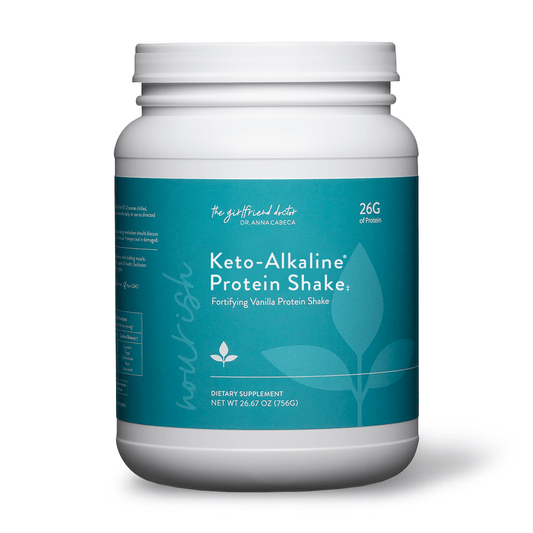Hey, remember me?
Hmm, I don’t remember you, either! What’s your name again?
Why did I come into this room?
Where did I put my keys this time?
Ever have any of those experiences? Well, you’re not alone!
Many women who participate in my hormone balance programs come to me complaining of brain fog – that feeling of not being able to fully focus, problems remembering things, and feeling older than our years. Sound familiar? I know brain fog hits me on occasion, especially when life gets hectic and I stray from my usual routine. I have even been known to frantically search for my misplaced glasses, only to find them on top of my head!
For decades, I have been showing women over the age of 40 that balancing their hormones is the number-one solution to brain fog. A woman’s naturally declining hormones are the root cause of common perimenopausal (premenopausal) and menopausal symptoms, such as weight gain, hot flashes and mood swings. During my years as an OB-GYN, I routinely prescribed bioidentical hormones – including estrogen, progesterone, testosterone and DHEA – to help with these issues.
As we journey into and through menopause, there are three hormones that are vital to our brain health: estrogen, insulin and cortisol.
Let’s dive into the effect menopause has on memory and what you can do to support optimal brain health and longevity.
How declining estrogen levels literally starve a woman’s brain

Many women don’t realize it, but estrogen is not simply about reproductive health and fertility. Estrogen also helps regulate many systems in our bodies, including those for sleep, our circadian rhythm, thermoregulation, sensory processing and cognitive function.
You might notice that these systems do overlap with our typical perimenopausal symptoms – insomnia, temperature dysregulation and hot flashes, mood swings, and decreased cognitive function. The residual effects can include brain fog and memory issues.
Estrogen is particularly important in feeding our brains!
Estrogen is a master regulating hormone that controls energy metabolism in the brain. To do this, it utilizes a network of estrogen receptors throughout a pathway (called the glycolytic pathway) that handles the transport of glucose to the brain. Your brain needs glucose to function and cells need glucose for survival. Even brief periods of glucose deprivation will result in neuronal death.
Along with regulating glucose transport, estrogen supports overall neuroprotective health, helps modulate mitochondrial function, and promotes the generation of ATP (adenosine triphosphate). Mitochondria are like little power plants, supplying energy to the cells in the form of ATP. Mitochondria are vulnerable and can become impaired by various factors our bodies encounter daily, one being oxidative stress. (Mitochondria dysfunction and oxidative stress appear to be early players in the disease process associated with Alzheimer’s.)
Adequate estrogen levels help feed your brain the glucose it requires to function optimally.
When estrogen levels decline, the glycolytic pathway is impaired and the brain begins to starve from a lack of glucose. This in turn affects overall cognitive function and may accelerate the risk of Alzheimer’s disease and dementia. No wonder the estrogen decline women begin to experience in their 40s starts to result in symptoms such as brain fog, memory loss and mood fluctuations.
Treatment with increased levels of estrogen has been shown to improve:
- Metabolic activity in the brain
- Memory and cognitive function
- Mood
Perimenopause and brain health
During perimenopause – the time before and during a woman’s natural transition to menopause – estrogen levels fluctuate but are on the decline. As a result, women can experience symptoms such as hot flashes, insomnia, brain fog and mood changes.
Many scientists believe that perimenopause might also provide women a window of time for influencing their long-term brain health – a period when the estrogen receptor network can be greatly influenced, with the potential result being a positive impact on neurological dysfunction or even prevention of age-related neurological diseases.
This has become known as the “window of opportunity” theory: a limited time around menopause during which estrogen HRT (hormone replacement therapy) can exert a positive effect on brain function, assuming that a woman’s neurological health is not yet compromised in some way. (Note that most of the research related to this issue of timing has focused on oral estrogen HRT, not transdermal or vaginally applied estrogen.) Unfortunately, a lot of hormone therapy is initiated by women only after menopause or in early postmenopause – beyond their “window of opportunity.”
Does this mean estrogen HRT during perimenopause is the only avenue to supporting brain health? What about women who don’t wish to or shouldn’t take HRT, or who are past their “window”? Is it hopeless for them?
Not at all. Read on.
Ketones: the alternative fuel source for the brain
Ketones are an alternative food for the brain and there has been a lot of ongoing research relating to the positive effect of ketones on brain health, dementia and Alzheimer’s disease.
Unfortunately, due to poor diet and lifestyle considerations, most of us don’t produce ketones in our bodies. (Just ask the women taking my Magic Menopause programs – getting their urine to test positive for ketones is not easy at first, until they get and remain alkaline, remove food sensitivities, improve stress management, etc.)
Poor diets can cause glucose levels to skyrocket, leading to insulin resistance, prediabetes and even diabetes itself. If the glycolytic pathway is deficient due to declining estrogen levels, then glucose won’t make it to the brain. Brain fog, anyone?
So what’s a ketone, anyway?
You’ve likely heard of ketogenic diets. They’re based on the premise of eliminating carbohydrates from what you eat. It is the high consumption of carbs that spikes your blood sugar level and creates an ongoing flood of insulin. (Insulin is required to get glucose into your body’s cells.) With carb consumption, your body burns glucose for energy, while insulin stores any excess energy as fat.
When you remove unhealthy carbs from the diet, in about three to four days the body goes into a metabolic state called ketosis and starts looking for an alternative energy source. When the body is in ketosis, it actually starts burning fat (since glucose isn’t available) and it gets its energy from these things called ketone bodies in your blood.
I developed my Keto-Green™ diet and lifestyle program to help women realize the health benefits of ketosis. Keto-Green provides both the fat-burning benefits and the brain-health benefits associated with ketones and ketosis. Typical ketogenic diets do not keep our bodies alkaline, and alkalinity is necessary in order to balance pH levels and feel energized and healthy.
Not only can the Keto-Green diet help you produce ketones, it can also reduce insulin resistance, should you have that condition.

Insulin
Insulin also plays an important role in brain function, especially in learning and memory. Research has found that cognitively healthy individuals will display cognitive deficits when their insulin function is reduced.
There has been increasing evidence of an association between a high-glycemic diet and a greater incidence of something called “cerebral amyloid burden” observed in people with Alzheimer’s disease (AD). In other words, a buildup of amyloid deposits decrease brain function. Increased insulin resistance also has been found to contribute to the development of sporadic AD, which is the most-common form of Alzheimer’s.
Another benefit of improved insulin sensitivity (above and beyond a healthy brain and weight loss) is less-frequent hot flashes!
Don’t stress - it’s bad for your brain!
If you’ve followed me for even a short period of time, you’ve likely noticed that I like to talk about the importance of improved stress management as part of my Keto-Green lifestyle. Chronic stress will adversely impact your overall health and your ability to connect with the ones you love; it also will negatively affect your brain!
Studies have shown that stress can impair your memory and affect brain volume. The adrenal glands are in charge of producing cortisol – aka the stress hormone – and too much stress can overwork the adrenals, causing them to churn out too much cortisol, while impeding their ability to produce other protective hormones (such as progesterone, pregnenolone and DHEA). Consistently raised levels of cortisol will cause memory issues, high blood sugar, high blood pressure, insomnia, and immune system suppression. Insulin resistance ultimately will also be in the cards.
We all lead stressful lives, but there are ways to successfully deal with this. Using my Keto-Green program, I have for years focused my patients and clients on managing their stress, eating alkaline foods and ensuring they are taking in the right nutrients for adrenal health. To optimize your brain health and get out of the fog, make efforts to reduce your risk of insulin resistance and related health issues by following the principles of a healthy lifestyle. These principles include reducing stress, getting adequate restorative sleep, increasing movement, removing food sensitivities, and more.
It’s time to regain and experience a renewed sense of clarity and awareness, and become re-engaged in your life and relationships. Clear the fog once and for all. Find time to reflect and take the right steps towards a happier and healthier you.
When things get stressful, it can be so easy to resort to unhealthy remedies – like junk food and alcohol – for comfort. For the Keto-Green lifestyle, however, I’ve created dozens of delicious and nutritious recipes that will help keep you from falling back on any of that bad stuff. You’ll also find these recipes in my new book, “The Hormone Fix.” Next time you’re stressed, try digging into one of these dishes – how about this scrumptious and easy-to-make keto frittata, for starters?
Easy Keto Frittata with Sauteed Spinach

Serves 4
Ingredients
- 20 small asparagus spears
- 1 tablespoon organic ghee
- 2 small scallions, chopped
- 1 small shallot, peeled and chopped
- 1 large red bell pepper, sliced into strips
- 10 large organic cage-free eggs
- 1/4 cup full-fat whipping cream or coconut whipped cream (optional)
- 2 tablespoons chopped fresh parsley (or 1 teaspoon dried parsley)
- 2 tablespoons chopped fresh mint (or 1 teaspoon dried mint)
- 1 tablespoon chopped fresh tarragon (or 1 teaspoon dried tarragon)
- 1 package fresh soft goat cheese or any soft full-fat cheese (optional)
- 1 3-ounce package of pancetta or 8 to 10 slices of bacon
- 4 cherry tomatoes
- Extra-virgin olive oil
- Balsamic vinegar
- Salt and pepper
Directions
- Preheat oven to 400° F.
- Prepare the asparagus by cutting off the woody ends.
- Heat a nonstick pan over medium heat and add 1 tablespoon ghee. Add the asparagus, scallions, shallot and bell pepper. Season with salt. Cook about 5 minutes, then set aside.
- In a bowl, whisk the eggs, cream and herbs (parsley, mint, tarragon). Season with salt and pepper.
- Place the cooked vegetables into a baking dish. Crumble the cheese equally over the vegetables and then pour the egg mixture over them. Place dish in oven and bake about 20 minutes, until the top just becomes firm. Remove dish from oven and reduce oven temperature to 350° F.
- Lay the pancetta or bacon all over the frittata and place dish back in oven for an additional 15-20 minutes.
- Serve with a side of sliced tomatoes drizzled with extra-virgin olive oil and a small amount of balsamic vinegar.
P.S. My Keto-Alkaline Protein Shake powder is a great way to help harmonize the hormones listed above....
As well as fight brain fog and other cognitive issues. My Keto-Alkaline Protein Shake is a perfect way to incorporate more protein into your diet!







